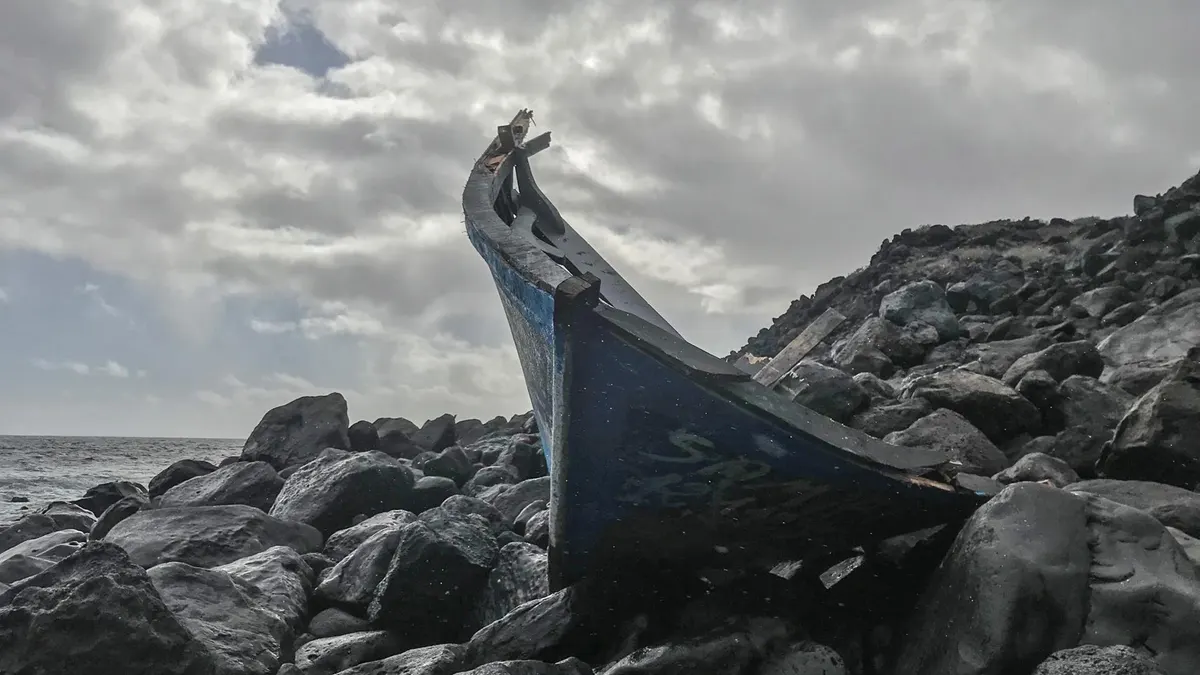
The European Commission proposes to harmonize penalties for migrant trafficking in the European Union, so that the most serious cases, involving, for example, the death of migrants during crossings, can be punished with a maximum penalty of at least 15 years in prison. This will mean toughen penalties for these types of crimeswhich in current legislation is eight years, as indicated by the Commission.
This Tuesday, Brussels presented proposals – a directive and a regulation – to update the current legislation, which is 20 years old. The goal is to help pursue and sanction human trafficking networks and extend jurisdiction to cases in which non-EU citizens lose their lives, as happens when ships using these nets sink in international waters, as indicated by the European Commissioner for the Interior, Ylva Johansson.
The presentation of the new regulations has coincided with the holding of a high-level international conference in Brussels with the aim of promoting cooperation against migrant smuggling. According to the Commission, these networks, which are simultaneously dedicated to drug and weapons smuggling, obtain profits from their criminal activities all over the world they swing between 4,700 and 6,000 million of euros per year.
Last year the EU registered around 331,000 irregular entries at its external borders, more than 90% through human trafficking networks. On the other hand, the loss of life on these dangerous journeys is a constant and only in the Mediterranean have drowned or more than 28,000 people have disappeared since 2014, according to Commission data.
The president of the community Executive, Ursula von der Leyeninvited this Tuesday, when opening the conference, to create a global alliance against migrant smugglinga “common challenge” – he said – that transcends borders.
Legislative changes
Specifically, the Commission proposes improve its legislative framework with minimum standards to prevent and counteract assisting unauthorized entry, transit and stay in the EU.
On the one hand, it plans to pursue organized criminal networks with a clearer definition of the crime of smuggling to focus on activities motivated by financial or material benefit or with a high probability of causing serious harm to a person. The public incitement to move to the EU without authorization too will become a criminal offense and will include advertising made through digital tools and social networks. The Interior Commissioner has specified that the objective is attack criminal networks and that humanitarian aid NGOs that carry out search and rescue tasks at sea are not criminalized.
The regulations also provide for harmonized penalties that reflect the seriousness of the crime, so that aggravated crimes (those that cause the death of one or more people) will be punished with a maximum prison sentence of at least 15 years. Another purpose is to improve the scope of jurisdiction so that the regulations of the Member States also apply. when ships sink in international waters and people die. These laws will be extended to other cases, including crimes committed on board ships or aircraft registered in member countries.
Countries will also be asked to work on preventing the smuggling of migrants with information and awareness campaigns, and will be encouraged to collect and report statistical data annually to improve case detection and response. On the other hand, with the new rules, Member States may be required to have the necessary judicial and police authorities to ensure effective prevention, investigation and prosecution of offenders.
The community executive wants give the Europol agency a more relevant roleand proposes to create the European Center against Smuggling of Migrants for operational actions and investigations in the EU. Brussels defends that this will help improve the exchange of information between the EU, the United States, Europol and other community agencies (Eurojust, Frontex), as well as third countries.
These legislative proposals will now be negotiated by the European Parliament and the Council. Brussels has also committed to working to advance the global alliance against the smuggling of migrants announced this Tuesday at the international conference. To this end, there will be periodic meetings to review progress: the next one will be in Copenhagen in the spring of 2024.
Source: Lasexta
Ricardo is a renowned author and journalist, known for his exceptional writing on top-news stories. He currently works as a writer at the 247 News Agency, where he is known for his ability to deliver breaking news and insightful analysis on the most pressing issues of the day.












